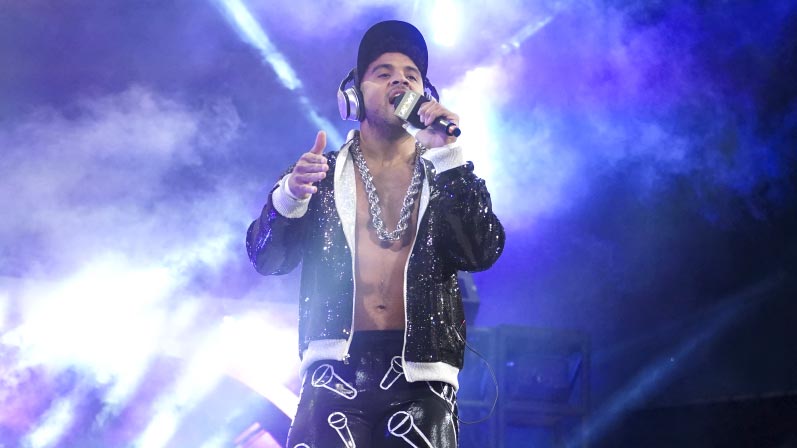
AEW World Trios Champion Max Caster stirred up conversation when his Twitter account replied to a post discussing AEW’s talks with former WWE Superstar Shelton Benjamin.
In response, he stated, “We have no interest in him!” This tweet sparked a flurry of interactions with fans overnight. As a result, Caster addressed the backlash and clarified that his account had been hacked. To read his official statement, see below:
“From Max, Hello, users of X (formerly Twitter). My followers, my former followers, and wrestling fans…Last night, while I was asleep, I was hacked by a hacker. That person proceeded to correspond antagonizing messages to you, the fans. They caused a lot of problems that I would never intend to start. Ironically, I stand behind all the opinions and statements made by my hacker, and I will not be deleting the posts. However, rest assured that I have full control of my account once again. Thank you for understanding. Humbly, The Best Wrestler Alive.”
Never thought I’d have to do this… Please understand at this difficult time 🙏 pic.twitter.com/KcfqlBBy06
— ”Platinum” Max Caster (@PlatinumMax) March 11, 2024
AEW World Trios Champion Max Caster recently found himself in the midst of controversy when his Twitter account replied to a post discussing AEW’s talks with former WWE Superstar Shelton Benjamin. In response, Caster’s account stated, “We have no interest in him!” This tweet quickly ignited a flurry of interactions and discussions among fans overnight.
However, Caster soon addressed the backlash and clarified that his account had been hacked during the incident. In an official statement, he expressed his apologies and explained the situation to his followers. Caster stated, “From Max, Hello, users of X (formerly Twitter). My followers, my former followers, and wrestling fans… Last night, while I was asleep, I was hacked by a hacker. That person proceeded to correspond antagonizing messages to you, the fans. They caused a lot of problems that I would never intend to start.”
Interestingly, Caster added a touch of irony to his statement by mentioning that he stands behind all the opinions and statements made by his hacker. He made it clear that he would not be deleting the posts. However, he assured his followers that he has regained full control of his account and thanked them for their understanding.
The incident serves as a reminder of the potential dangers of online platforms and the vulnerability of public figures to hacking. It also highlights the importance of verifying information before jumping to conclusions or engaging in online debates.
Max Caster, known as “The Best Wrestler Alive,” is widely recognized for his talent and charisma in the professional wrestling industry. As a member of AEW, he has gained a significant following and has become a prominent figure in the promotion. Caster’s skills on the microphone and in-ring abilities have earned him the AEW World Trios Championship, solidifying his status as one of the top performers in the company.
While this hacking incident may have caused a temporary stir, it is unlikely to have a lasting impact on Caster’s career or his relationship with fans. Wrestling fans are known for their passion and dedication, and they understand that incidents like these can occur in the digital age.
As Caster continues to entertain audiences with his in-ring performances and captivating promos, it is important to remember that social media accounts can be vulnerable to hacking. It is crucial for public figures and individuals alike to take necessary precautions to protect their online presence and ensure the accuracy of their statements.
In conclusion, Max Caster’s recent Twitter hacking incident sparked a significant amount of conversation among wrestling fans. However, Caster quickly addressed the situation, clarifying that his account had been compromised. While the incident may have caused some temporary controversy, it is unlikely to have a lasting impact on Caster’s career. As he continues to showcase his talent in the ring, it is essential for both public figures and individuals to remain vigilant about online security and the potential risks associated with social media platforms.
